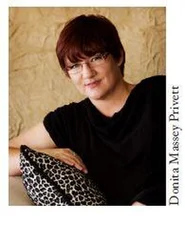That tone in his voice was such as to make Michael wonder if he was speaking to the same man. Of course he was. But hadn’t he wondered something like that when he encountered Alan at Daphne’s house a couple of months after that first meeting? This happy man who looked years younger? No longer, he felt, without seeing him. He walked past one of the turnings leading out of the Finchley Road. A clear, fine evening, rather cold under that sky, it was still early, so that few people were in the pub. Michael watched Alan come in. He looked no older but a tired man, a disappointed man. The thought came to Michael that if you couldn’t be with the person you loved and who loved you, to be alone was best. He asked Alan what he would like and fetched him beer and himself a glass of white wine.
They asked after each other’s health. Both were well, though Alan didn’t look it. ‘You must have been wondering who put the hands in the box,’ Michael said.
‘I have no idea. How could I have? Does anyone?’
Michael said, ‘I think the police know but they haven’t told me. I also know and I haven’t told them. I know whose the hands were, or rather I know whose they were not. You remember Lewis Newman?’ Alan nodded. ‘He phoned me and told me the man’s hand wasn’t that of a man called James Rayment who was his mother’s brother.’
‘Did you think it was?’
‘I had no reason to think so.’ Michael winced a little, wrinkling his nose and widening his mouth. ‘The other hand was that of my mother, you see.’ He spread his own left hand on the tabletop. ‘One doesn’t like thinking things of that sort of one’s mother.’
‘I imagine not.’
‘You see, she was my mother. Before I was born, for nine months I was carried inside her body. I don’t like to think of it.’
What Michael had said seemed to have affected Alan heavily. Or something else had. Instead of pale, he had gone red, a flush colouring his face. Momentarily, he closed his eyes. ‘Tell me something,’ he said, leaning forward. ‘What did you think when I went off with Daphne?’
The question surprised Michael. Why should the man care? ‘I’d rather not say.’
His preference was ignored. ‘Did you think I was crazy, or she was? Were you – well, astounded?’
‘I don’t know. I expect you’d be offended or hurt or something if I said I didn’t think much about it.’
The old Alan would have laughed. The new one said, ‘Think about it now.’
‘All right. I’ll tell you. I hadn’t seen Rosemary since she was – what was she, ten, eleven? When I saw her at George’s, she reminded me of my wife. Vivien has been dead for years but she reminded me of her.’
‘I’ve nothing more to say,’ said Alan. ‘That’s it. Thanks for coming here.’
They both got up. Neither had any idea of shaking hands. Michael went off across Belsize Park Avenue to Swiss Cottage and Alan to Carlton Hill. They might have walked part of the way together but they chose to go separately. It wasn’t often that Michael felt happy to be in his own home, but he did that evening, or almost happy. It occurred to him that apart from a couple of comments, Alan had talked mainly about Daphne. He went upstairs, lay on his solitary but comfortable bed and told Vivien about his evening. He told her how Rosemary had reminded him of her but not all that much, how it was really just one nice, pleasant woman bringing to mind another. Not that he needed anything to bring Vivien to mind. It seemed to him that when he’d said that about Rosemary, Alan had winced, but maybe he’d imagined it.
Alan walked down Greville Road to Hamilton Terrace and took the road where Daphne lived very slowly, delaying his arrival at her house.
If she had been asked, Rosemary wouldn’t have admitted to being happy. How can you be happy when your husband has left you for another woman? When he has left you without a cause, when everything between you had been as it always was, pleasant, loving, a peaceful, quiet relationship. Or had it been? She asked herself that quite often and finally came to the conclusion that it hadn’t. Alan had spoken to her only to ask for something or to tell her it was time for their walk, had kissed her when he did so but on the cheek, had eaten his meals behind a newspaper. It would have been behind a book except that she protested against that, a ban he seemed disproportionately to resent. Hours passed when he said nothing, but once when she told him she disliked being totally ignored, he said simply that at their age there was nothing left to say. As for sex, or making love as she called it, that had stopped years before. He had sex with Daphne, didn’t he?
‘He’ll come back,’ Judith said on one of her teatime visits.
Neutrally, her mother said, ‘I don’t know. Perhaps he will.’
The woman upstairs who had the cat said, ‘One of these days he’ll come back.’
Freya, appearing one afternoon with her baby, quoted her own mother without knowing she did so. ‘He’ll come back, Gran.’
‘Why do you say that?’
‘They always do.’
Did she think her grandmother would start crying? Would say no, he never will, and keep on crying? ‘What about all those divorces? Those husbands didn’t come back.’
Freya had nothing to say. She talked about the baby instead.
Rosemary had never lived alone before. At first it had been with her parents, then with Alan. If her home had been a detached house, as it had once been, she might have been uneasy, even frightened, especially at night, but aware here of living in a flat with others above, below and on either side of her, she wasn’t even apprehensive.
She had started going to bed later. Since Alan had said that about their lives having been dull, she often told herself that he was right, but it was a painful thing to admit. This was her whole life gone by. She thought how the friends she had, the people she knew, that she invited to Traps Hill and to whose houses she went, were Alan’s, from the golf or tennis club; one or two had been at school with Alan. Where were those who had been at school with her? Today was Friday and she was going to the theatre, going alone. She didn’t have to go. She could tear the ticket up and stay at home. Her inner voice told her that if she did that, she would never go to the theatre again, never to the cinema. She phoned Fenella and asked her whether, if she bought a computer, she would teach her how to use it. Fenella asked her if she could type at all.
‘I’m a good typist,’ said Rosemary, and added, ‘Very good.’
Her granddaughter was surprised. As she put the phone down, Rosemary thought how none of the family had ever heard of her prowess, or if any of them had been told, they hadn’t listened. She walked to the shops, bought some food for lunch, put a new coat on over her dress and set off for London. She was very early and had nothing to do and nowhere to go for several hours. She could call on Freya or Judith. Sitting down on a seat in the park – which park? Hyde, Regent’s, St James’s? – she leafed through her little address book and found a phone number that once had an exchange called Ambassador. It belonged or had belonged to an old school friend called Emma. Rosemary went into a call box and got a sharp buzzing tone. Probably all the numbers she had were like that. She found two others, one exchange called Primrose, the other Acorn; the numbers were of corporations or firms.
It was growing cold. She would buy a mobile phone tomorrow and teach herself to use it. She was sure she would never hear from Fenella on the subject again. Now what? She walked into a cinema, where the woman behind a window sold her – without even asking – a senior person’s ticket. It was a Japanese film, and when Rosemary saw what it was she very nearly walked out. But it was rather good, it was very good. She started to sit it out, then enjoyed it. Maybe she would try another one of these. To her surprise, she saw it was six thirty.
Читать дальше












